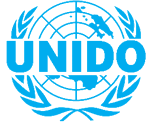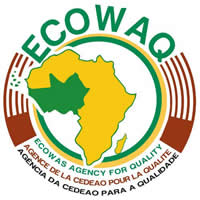




The European Union’s Commission (donor) and the ECOWAS Commission (main beneficiary) attributed the implementation of the West Africa Quality System Program (WAQSP) to the United Nations Industrial Development Organization (UNIDO).
UNIDO is the specialized agency of the United Nations that promotes industrial development for poverty reduction, inclusive globalization and environmental sustainability. The mandate of the UNIDO is to promote and accelerate sustainable industrial development in developing countries and economies in transition.
The overall coordination the programme is entrusted to the Department of Trade, Investment and Innovation of UNIDO based in Vienna,
The Department of Trade, Investment and Innovation (TII) supports countries in their efforts to develop through trade, investment and innovation the potential of the manufacturing sector to drive socio-economic progress.
The Department is responsible for assisting countries to strengthen competitiveness in global markets through capacity-building in quality, environmental sustainability, and social accountability requirements in accordance with international management system standards and private sector requirements. It supports the establishment of linkages between producers/processors in developing countries and local, regional and global value chains (retailer, manufacturers) by developing capacities in the area of product quality.
The structuring of ECOWAQ is different
Governance of the agency
The management bodies of the Agency are as follows:
- the general Assembly ;
- board of directors ;
- the Executive Direction.
The general Assembly
The General Assembly is the supreme organ. It is composed of all the members of the Association, notably from the Organizations listed below:
Organizations regardless of their legal status in charge of Standardization, Accreditation, Conformity Assessment and Technical Regulation activities in their countries;
Employers' Organizations through their regional associations;
Consular Chambers through their regional association;
Consumer Organizations, through their regional association;
Organizations of third States operating in the field of quality.
The Association may also be a member of any Private Sector Organization that is particularly interested in the activities of the Association.
It has the power to amend the statutes of the Association, to elect and dismiss the members of the Board of Directors, to decide on any matter submitted to it by the Board of Directors and to decide on the dissolution of the Association.
At its constituent meeting held on January 29, 2018, the general meeting reviewed the draft bylaws of the association and made recommendations for amendments. The final status will be adopted during its next session.
The Administration Council
It is made up of representatives of the five community committees. Its main responsibilities include the appointment of the Executive Director and members of the various community committees, the determination of the general policy, general rules and guidelines of the Association.
AnchorFor the definition of the strategic orientations of the Association, the Board of Directors executes the decisions taken by the ECOWAS Community Council for Quality (CCQ) .
The Board of Directors is assisted in its oversight responsibilities with respect to the integrity of the financial statements, financial reporting procedures and the internal control system by an auditor.
Recruited by the Board of Directors, after a call for application and formally appointed by the Ordinary General Assembly, and approved in a Member State of ECOWAS, the External Auditor ensures the control of the accounts of the Association.
The Board of Directors takes the necessary measures to provide the Agency with the following tools to ensure its relevant governance:
- Internal Control Policy Documents;
- Internal Regulations of the Board of Directors;
- Code of Conduct for Directors;
- Code of Conduct for the members of the Association and the experts requested;
- Conflict of Interest Management Document.
At its first meeting held on January 30, 2018, the Board of Directors reviewed the draft rules of procedure and made recommendations for amendments. The final rules of procedure will be adopted at its next session.
Executive Management
It includes the Executive Director, an administrative assistant, a quality unit, a communication unit and 6 operational technical units and a support services unit.
The Executive Director
Under the authority of the Board, the Chief Executive Officer's main functions are to prepare and execute the program adopted by said Board; appoint, direct and terminate the duties of the staff in accordance with the policy and by-laws established by the Board; to receive contributions from members of the Association and other sources, and to administer the property and assets of the Association; to represent the Association in its dealings with the Commission and third parties.
Operational cells
Under the leadership of the Executive Director, they are responsible for the implementation of action plans related to the various areas of operational activities. They are 6 in number: Accreditation cell, Metrology cell, Standardization cell, Conformity Assessment cell, Technical Regulation cell and Training and Quality Promotion support cell. Each cell is headed by a manager, under the authority of the Executive Director.
Support services
They include Administration, Accounting and Finance, Information Systems and Logistics. These services are led by an Administrative and Financial Manager (AFM), the principal responsible assisted by an Accountant, an Information Systems Manager (ISM), a Logistician and a Driver. The AFM is under the authority of the Executive Director.
 This program is funded by the European Union with the technical support of UNIDO, the implementing Agency
This program is funded by the European Union with the technical support of UNIDO, the implementing Agency
The views expressed in this publication do not necessarily reflect those of the Commision of the European Union




Copyright - 2019 - ECOWAS AGENCY FOR QUALITY